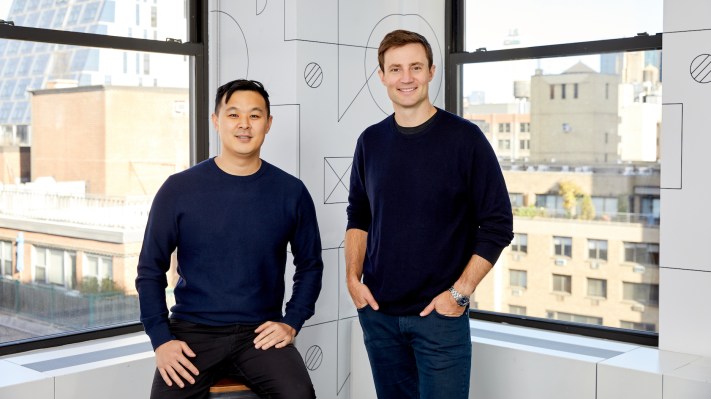Twelve Below secures $108M across two new funds

Pre-seed and seed companies have a new bucket of capital to go after today. Twelve Below, a New York-based venture capital firm, closed on $108 million in capital commitments.
Taylor Greene and Byron Ling started Twelve Below in 2021 after previous careers at Collaborative Fund and Lerer Hippeau for Greene, and Canaan and Primary Venture Partners for Ling. However, the pair have known each other and worked on deals together for a decade, including investments into Mirror, Papa and K Health.
Greene and Ling told TechCrunch their philosophy is reminiscent of the “old ways of venture capital.” They say it’s about trust — keep your fund size small, high conviction, high ownership and make a low number of investments.
“Our mentors told us that this kind of old-school approach will drive great returns,” Greene said. “We started with a blank piece of paper, designing the firm around that mentality based on relationships and trust with entrepreneurs.”
Twelve Below aims to lead or co-lead pre-seed and seed financings with the goal of earning a 10% to 15% ownership stake in the core investments from the fund. The firm invests in New York City-based startups in the areas of fintech, healthcare, energy, SMB and consumer sectors.
Its first fund was $50 million, and the portfolio includes Accrue Savings, Odyssey Energy, Croissant, Campus and Truehold. Greene and Ling tout that over 60% of their portfolio has already gone on to raise follow-on capital.
Greene and Ling say their big differentiator is their focus on trust. They also don’t have a platform team, so the founders work directly with them.
“We think trust is what underpins the ability to truly know what’s going on in business but also have an outsize impact,” Ling said. “Their success and our success are very much intertwined. We’ve been very deliberate in that model because we think founders truly want personalized attention with an individual trusted partner, which is very different and why we’ve resisted the model of having a platform team and having all these different individuals that could potentially fragment that relationship over time.”
The new capital is spread across two new funds, $80 million for its second early-stage fund and a $28 million opportunity fund, giving the firm total assets under management of $160 million. The firm is backed by entities, including large university endowments, institutional fund of funds and large family offices.
It was its large number of portfolio companies going after follow-on capital that got Greene and Ling thinking of how they could further support their companies. Greene described the opportunity fund as “a little bit unique.”
“It just invests in our existing companies,” Greene said. “We saw this disconnect in the market where we’re very excited about pricing, especially as we follow on into our existing companies. Pricing is, from a risk-reward perspective, seems great. We’re also very excited about how the portfolio is shaping up, so it gives us the ability to put more money into our existing companies.”
The pair invested in 21 companies with its first fund and plan on around 25 for the second fund and between five and eight companies for the opportunity fund. They haven’t made an investment yet from the second fund, but say that is coming early next year.


